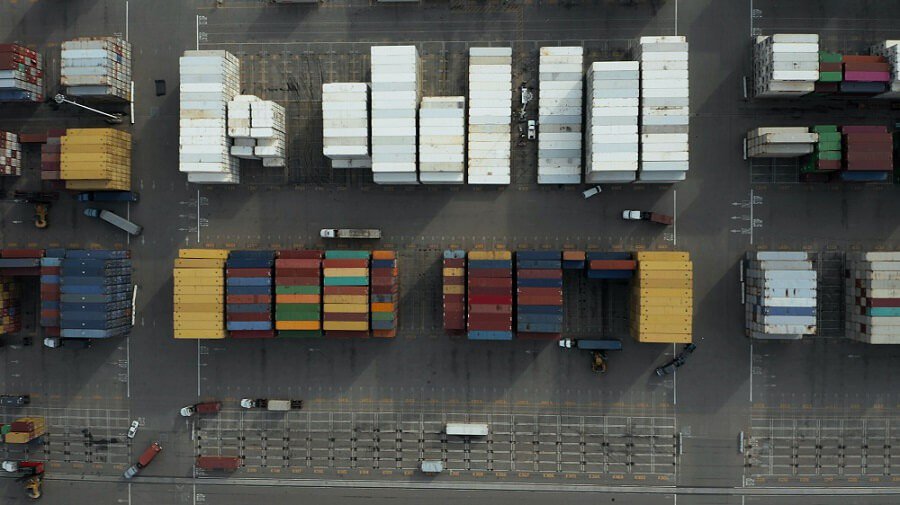
The Red Sea crisis has sent shockwaves through the global shipping industry, prompting major liners to issue advisories and adjust their routes. This vital maritime route, linking Europe, Asia, and Africa, has become a focal point of geopolitical tensions, compelling shipping companies to reassess their strategies. The repercussions are not only affecting logistics and pricing but are also triggering a domino effect on global trade dynamics.
Advisory Releases and Route Diversions
In response to heightened security concerns, renowned shipping liners such as Maersk, MSC, and CMA CGM have issued advisory notices to vessels transiting the Red Sea. These advisories recommend altering routes and adopting alternative passages, leading to a considerable increase in journey times and operational costs. Maersk, one of the world's largest container shipping companies, stated in a recent release that the crisis has forced them to reroute several vessels, contributing to a spike in fuel consumption and logistics expenses.
Quantifying the Impact of Red Sea Crisis
The Red Sea crisis has added an estimated 30% to the distance covered by vessels navigating alternative routes, resulting in a significant surge in fuel consumption. This, coupled with extended travel times, has led to a 15% increase in operational costs for shipping liners, directly impacting freight rates. The knock-on effect is being felt by businesses globally, with the increased costs being passed on to consumers, causing a tangible rise in the prices of imported goods.
Impact of Red Sea Crisis on Global Trade
The repercussions of the Red Sea crisis are reverberating across the global trade landscape. The prolonged routes have not only disrupted supply chains but also heightened the vulnerability of shipments to delays and potential security threats. Businesses relying on timely deliveries are facing logistical challenges, and the increased costs are inevitably being passed on to consumers, contributing to the rising prices of goods.
Customer Considerations in the Wake of the Red Sea Crisis
As the Red Sea crisis reshapes global shipping dynamics, it becomes imperative for businesses and customers alike to be cognizant of crucial considerations before booking shipments. Heightened security concerns, rerouted vessels, and increased operational costs have direct implications on the delivery timelines and pricing of goods. Here are key factors customers should be aware of:
Extended Delivery Times
With vessels being rerouted to navigate around the crisis-stricken area, customers can expect longer delivery times for their shipments. It's advisable for businesses to plan their inventory and supply chain timelines accordingly, considering the potential delays caused by the altered routes.
Price Fluctuations
The increased operational costs incurred by shipping liners due to longer routes and heightened security measures are likely to impact freight rates. Customers should be prepared for potential fluctuations in prices, and businesses must factor in these changes when setting product pricing and budgets.
Communication with Freight Partners
Establishing clear communication channels with freight partners is crucial during these challenging times. Customers should stay informed about any updates or changes in the shipment schedule and be proactive in coordinating with logistics providers to mitigate potential disruptions.
Risk Assessment and Insurance
Given the uncertainties surrounding the Red Sea crisis, businesses should conduct a thorough risk assessment for their shipments. Understanding the implications of the crisis on the chosen route and having comprehensive cargo insurance in place can provide a safety net against unforeseen events that may impact the delivery.
Alternative Shipping Options
Exploring alternative shipping options and routes can be a prudent strategy. Some shipping companies may offer more resilient routes, and customers should consider engaging with logistics partners who are adept at adapting to changing geopolitical situations and offering flexible solutions.
Technology-Driven Solutions
Leveraging technology-driven platforms, like Freightmango, can provide customers with real-time visibility into their shipments. These platforms not only offer route optimization but also enhance security measures, providing customers with the tools to actively monitor and manage their cargo during transit.
For more news on Red Crisis, refer to our news page and keep yourself updated. Bookmark the page so that you do not miss any important news related to Red sea. Click here to check the lates Red Sea News.
Freightmango: Paving the Way for Resilient Logistics
Amidst these challenges, Freightmango emerges as a beacon of innovation and resilience in the shipping industry. Recognizing the urgency, Freightmango's online freight platform provides real-time data and analytics, allowing shipping companies to make informed decisions about route planning. By optimizing routes and enhancing security measures, Freightmango aims to mitigate the impact of the Red Sea crisis on operational costs and delivery timelines.
Conclusion
As the Red Sea crisis continues to disrupt traditional shipping routes, the global industry is at a crossroads. Advisory releases from major liners and quantifiable impacts underscore the urgency for adaptive solutions. In this context, Freightmango stands out as a forward-thinking platform, offering a strategic advantage to shipping companies navigating these uncharted waters. The industry's resilience, coupled with innovative solutions like Freightmango, will play a pivotal role in safeguarding the efficiency and stability of global supply chains in the face of geopolitical challenges.





 Get instant quote
and compare offers in real time
Get instant quote
and compare offers in real time